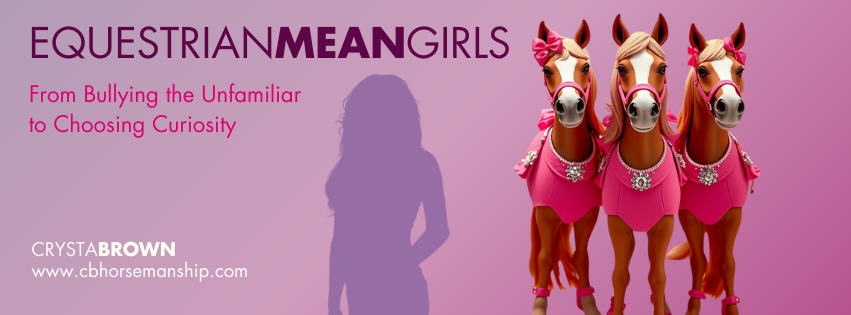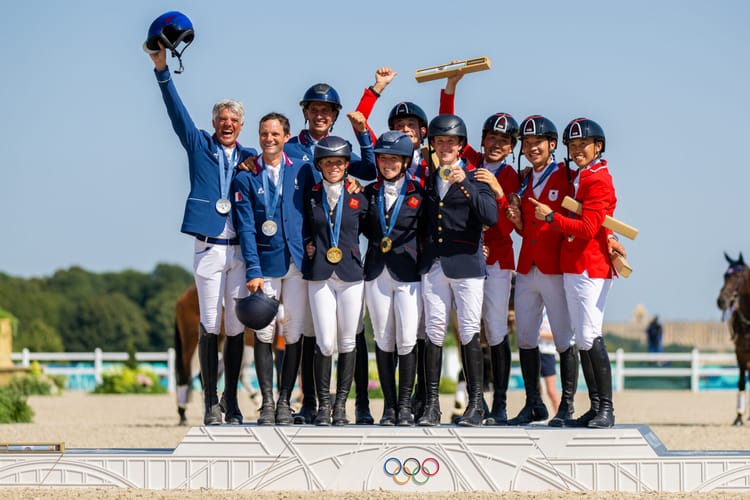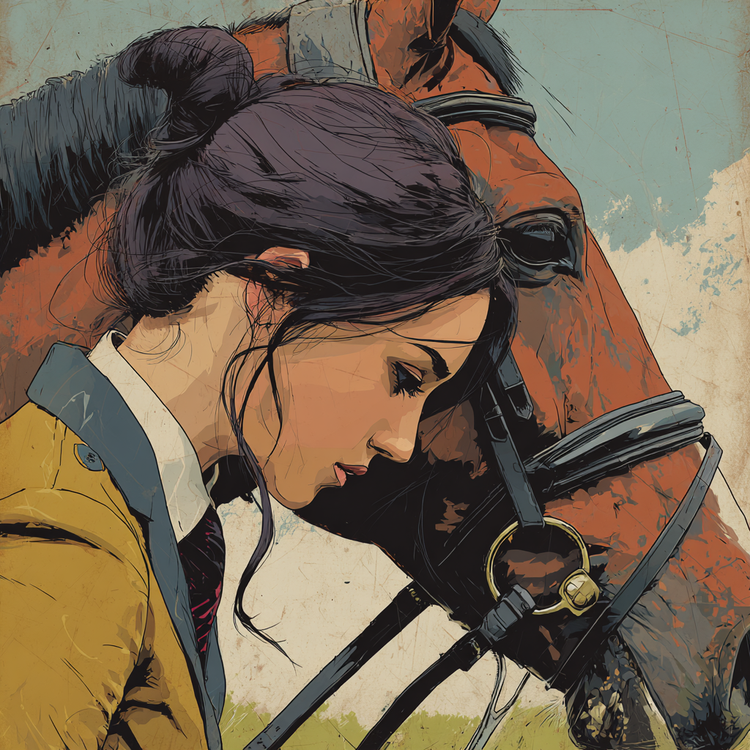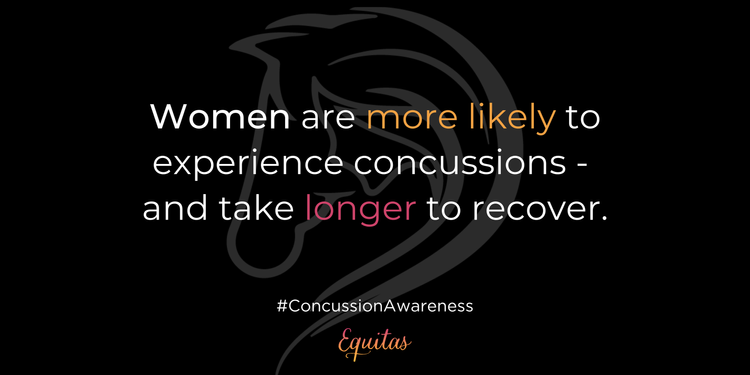Equestrian Mean Girls: From Bullying the Unfamiliar to Choosing Curiosity

Sitting at the barn, giving my mare a good groom, I started to ponder a recent new client of mine. After her first lesson I noticed she had formerly left hate comments on one of my videos of western horses. I couldn’t help but wonder:
Has the equestrian social media turned into the Burn Book?
In this case she is certainly not a bad person. Far from it. Loves her horses, now feels very positive about the western and the biomechanical correctness, and has loved learning in our lessons together. But she, like many people, saw a horse being asked to perform differently than she was used to and had a negative reaction. I find that lately, it feels like any time someone posts a video of a different training method, a unique tack setup, or—heaven forbid—a controversial riding style, the comments section becomes Regina George’s lunch table.
“Poor horse.”
“Someone call PETA.”
“This is abuse.”
We don’t even take a moment to understand. We just grab our metaphorical pink pens and start scribbling our judgments. But here’s the thing: in Mean Girls, Regina and her posse weren’t the heroes. So why do we, equestrians, keep wearing their shoes (and by shoes, I mean tall boots)?
You Can’t Sit With Us—Or Can You?
Let’s rewind to the famous cafeteria scene. Regina assigns everyone their place—jocks here, art freaks there, and oh, the equestrian table? That’s filled with the dressage queens, hunter divas, barrel racers, and ranch riders, each eyeing each other suspiciously.
It’s the same online. Dressage riders mock barrel racers for “yanking on the reins,” while ranch riders raise their eyebrows at a hunter’s noseband. Even on my own TikTok videos, the comments are often filled with English riders terrified of my cloverleaf western spurs, who clearly have never touched a pair. And let’s not even mention barefoot versus shod or the endless debates about draw reins.
But what would happen if, instead of sitting at our cliquey little tables and passing judgment, we got up, grabbed a tray, and joined someone else’s table? Not to critique, but to learn.
Curiosity Over Criticism
Imagine this: instead of typing “That horse looks miserable,” you comment, “This is interesting! Can you tell me more about why you chose that method?”
By approaching things with curiosity instead of criticism, you give yourself the chance to grow as a rider and a human. Maybe you’ll learn that the training method you judged as harsh is actually backed by sound biomechanics. Or that the tack setup you thought was “weird” is traditional in another discipline. Or maybe, just maybe, you’ll discover that people do things differently because horses are individuals—not one-size-fits-all creatures.
"By approaching things with curiosity instead of criticism, you give yourself the chance to grow as a rider and a human."
The Limit (of Your Knowledge) Does Not Exist
Remember when Cady Heron beat Regina George at her own game by, well, not playing it? She built others up instead of tearing them down. That’s the kind of energy we need in the equestrian community.
So the next time you see a post that makes you raise an eyebrow, think of Janis Ian and ask, “Why are you so obsessed with tearing people down?”
Then, channel your inner Cady and seek to understand instead of judge.
Boo, You Horse-Hater
Of course, there’s a difference between seeking understanding and excusing actual abuse. When a post or practice truly harms a horse, calling it out is necessary. But there’s a fine line between protecting horses and crying “abuse” every time you see something unfamiliar.
If we keep yelling “boo, you horse-hater” at everyone who rides differently, we’re not helping horses—we’re just creating drama. And last I checked, creating drama doesn’t suddenly make you an international rider.
Stop Trying to Make “Abuse” Happen
At the end of the day, the equestrian community is like high school: messy, passionate, and full of people just trying to figure things out. But if Mean Girls taught us anything, it’s that the drama doesn’t make us better—it just makes us mean.
So let’s ditch the Burn Book vibes and start asking questions instead of slinging accusations. Because curiosity isn’t just kinder—it’s fetch.
And maybe, just maybe, if we approach the equestrian world with curiosity instead of criticism, we’ll find that there’s a lot more to learn—and a lot more to love.
As I put my phone away and saddled up my horse, I had to ask myself: are we all so quick to judge because it’s easier than understanding? And if so, what would happen if we stopped being mean girls and started being curious riders instead?
Only one way to find out.
Now, let’s make curiosity happen.





